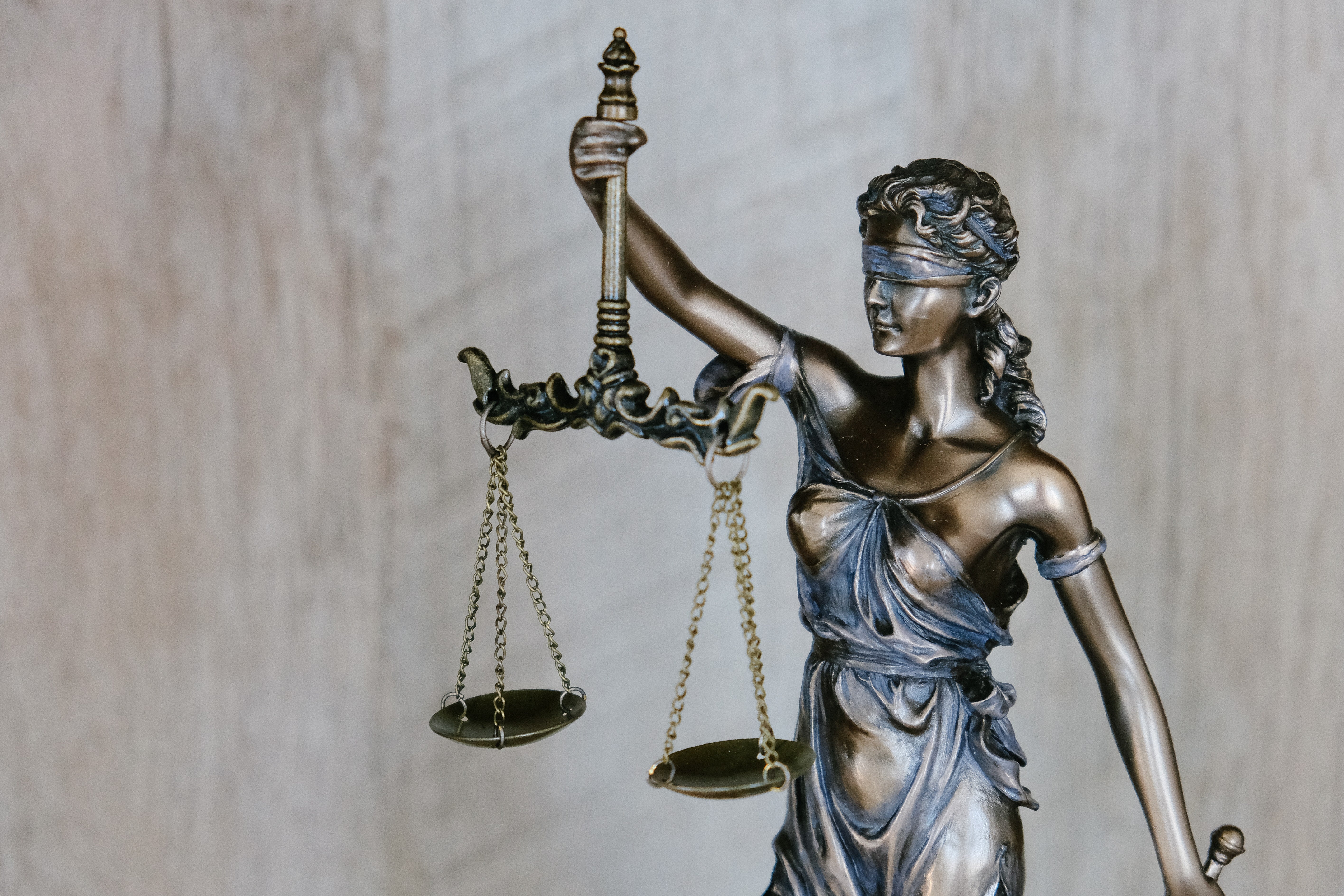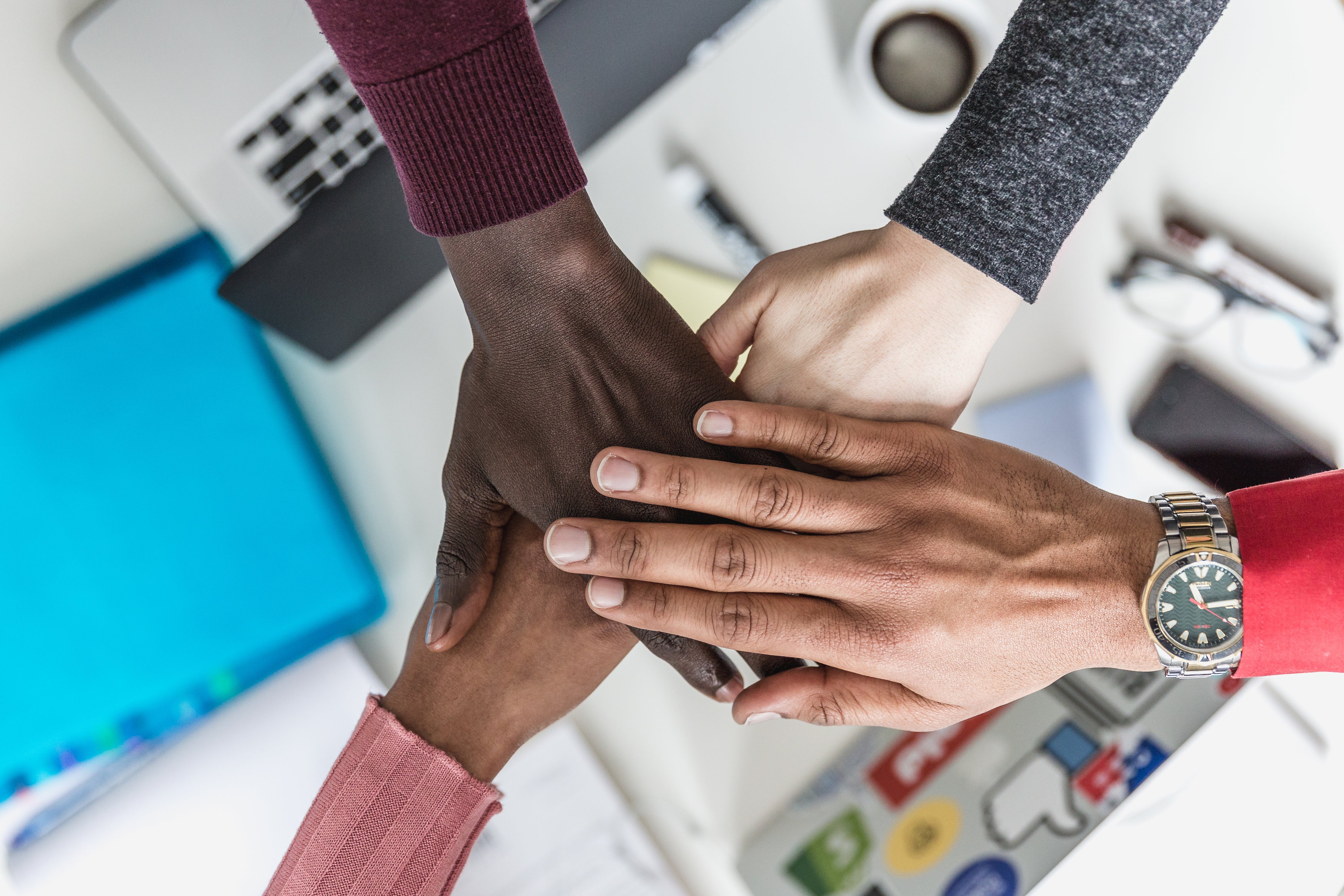Universal representation: Unlocking access to justice for asylum seekers
By Cherra Mathis | November 23, 2022
Imagine a dangerous journey, navigating harsh deserts and swift rivers, where the lost remains of thousands of others seeking safety lie. Imagine confronting traffickers and border patrols who have little regard for your humanity. Imagine being detained for months, separated from everyone who knows you, with limited or no ability to let family know you have survived this far. Finally, imagine facing a court alone as it adjudicates a life-or-death matter: your asylum petition.

Over 500 thousand people are currently petitioning for asylum in U.S. immigration courts. They are sisters, mothers, uncles, grandfathers, and children from all over the world, from China, El Salvador, Guatemala, Honduras, Mexico, India, Albania, and many other nations. Asylum seekers are people caught up in immigration enforcement, seeking refuge in a destination country, with a “well-founded fear of persecution on account of race, religion, nationality, membership in a particular social group, or political opinion.”
People seeking asylum may be fleeing violence or civil conflict in their own country, or seeking refuge from persecution by gangs, police, or family members targeting them, or a combination of these. Many asylum seekers carry trauma from the very experiences that make them eligible to petition for safety as well as their migrational journey; however, immigration enforcement processes are rife with policies and practices which exacerbate trauma and undermine conditions needed for asylum seekers to successfully pursue their claims.
The current state of U.S. immigration courts
People petitioning for asylum face “barricaded” courts, backlogged by nearly 1.5 million cases: a product of expanded criminalization of immigrants. Many are detained for months or years, lack access to counsel, don’t receive proper notice for their hearings, are processed en masse in chaotic hearings riddled with linguistic and cultural barriers, and suffer other violations of their legal rights. Courts deal with a scarcity of personnel to properly address the number of cases, meaning that immigration judges have insufficient time to assess and fairly adjudicate claims.
The life, liberty, and freedom of immigrants are at stake in asylum hearings; a rejected petition often means deportation, with asylum seekers returned to a place where they often face persecution and death. However, despite the critical nature of these hearings, asylum seekers do not automatically receive legal counsel. They generally must navigate court proceedings alone, managing language and documentation barriers without any legal support. They must stay on top of filing deadlines, hearing schedules, and other bureaucratic complexities on their own, which is difficult even in cases where time-sensitive paperwork is sent to the correct addresses. Physical and mental health sequelae of violence, which make petitioners eligible to pursue asylum claims, can also present an obstacle to fully and meaningfully representing themselves, or even participating in their case if they can obtain legal counsel.
A judge evaluating an asylum claim considers credibility, and evaluates it both through the facts and documents presented to corroborate testimony of abuse, and the “performance” of the applicant. While the Board of Immigration Appeals recommends that physical and documentary evidence should only be required if it is reasonably accessible, courts often require tangible proof from survivors to back their claims. However, when detained, with limited access to formal counsel or informal social support structures, and often navigating health sequelae of migrational and continuing violence, migrants struggle to add proof to their claims; in many cases, the documents may not even exist, or be impossible to obtain. These all constitute overwhelming barriers to a successful asylum petition.
Access to counsel
Access to legal counsel is one of the most substantial and statistically significant factors impacting successful immigration petition outcomes. However, of nearly 305,000 orders of deportation filed this year so far, only approximately 25% were represented by counsel, reflecting overall representation trends. For those in detention, access to counsel makes their immigration case 10.5 times more likely to succeed. Without counsel, asylum seekers must represent themselves in an unfamiliar system, obtain corroborating documents, and submit filings along a strict timeline. They are often unable to do so successfully.
While criminal courts provide counsel at no charge, migrants in immigration court must pay for their counsel or obtain pro bono legal representation. Socioeconomic status fundamentally impacts the ability to afford and retain legal services, meaning that migrants are penalized for their inability to pay for a lawyer. The 2013 matter of Franco-Gonzalez v. Holder, decided in favor of a petitioner with significant mental limitations, acknowledges that petitioners navigating severe physical and psychological health conditions cannot adequately legally represent themselves in immigration court. There is a constitutional case for government-provided counsel for those who fit this very narrow criteria and counsel is provided at government expense. Some advocates argue that no one without legal training could reasonably represent themselves in our immigration courts, which remain frustratingly hard to navigate even for trained professionals.
Yet many who require legal advocacy cannot obtain it, and approximately half available counsel is subpar and provides ineffective assistance to petitioners. And while a constellation of non-profit organizations focus on legal representation of particular categories such as unaccompanied children, people in detention, or people without prior criminal charges. These organizations provide vital services, but thousands of immigrants across the nation still remain unrepresented, facing pending petitions alone.
The argument for universal representation
The movement toward universal legal representation in immigration proceedings is based on the belief that everyone, regardless of documentation status and ability pay for a lawyer, deserves meaningful access to justice. Due to the adversarial and opaque nature of the courts and the complex requirements for petitioners, the only way to obtain this is through the presence of legal advocates. Concern for due process in immigration enforcement proceedings is a common refrain for legal rights activists, as is concern for judicial bias. Current immigration policies criminalize the act of migration , detaining and punishing precariously documented people for expanded categories of crimes. This increases the number of detained people overall, resulting in dockets thousands-deep and insufficient resources to provide adequate personnel and time to justly adjudicate petitions before the court.

Photo credit: Unsplash
So while due process may entitle migrants access to legal counsel, this right is inconsistently met when they are held in detention and ICE blocks efforts to connect them with legal advocates. Another due process concern is lack of timely notice for hearings on which cases depend; applicants may be assigned incorrect addresses or dates, or scheduled for hearings while detained —then denied access to transportation by ICE. Detained asylum seekers, isolated from legal advocates and social support, are also pressured to withdraw their applications by ICE personnel, who misinform and manipulate migrants to give up their claims and voluntarily self-deport. On top of these practical components, the physical, mental, and emotional impacts of violence impair linear memory and adversarial court settings may trigger longer-term trauma.
Universal representation in the United States
The way that courts fail migrants has sparked demands among advocates for a “civil Gideon,” or an expanded Constitutional right to counsel for those whose case outcomes can result in drastic impact to life, family, health, and safety. This would be similar to the public defender model, where individuals facing criminal charges are entitled to an attorney at government expense. Legal counsel is needed “to ensure fundamental fairness and to safeguard against errors that prejudice the outcome of the decision, including insufficient explanation of hearing procedures and failure to elicit facts pertinent to an asylum seeker’s claim.”
Universal representation requires investing personnel and resources for all precariously documented people facing deportation in a “federal defender service,” and when effectively implemented, results in high quality representation and interdisciplinary collaborations with other professions, such as expert clinical witnesses and court-accompaniment. Such support who contribute to meaningful migrant engagement with hearings. Presence of counsel also results in a more efficient case, with less time spent sorting out case progress and clarifying claims. Moving toward universal representation aligns with the momentum for decriminalizing border crossing, reforming current immigration court practice, and shifting away from lengthy detentions. These steps would help migrants pursue both procedural and substantive justice by enabling them to advocate for themselves.
Currently, efforts toward universal representation in the US are mainly the purview of nonprofits, local and state organizations that provide pro bono or low-cost services, funded philanthropically or with limited government support. However, the number of people needing representation still far outstrips the availability of counsel. Thus, community organizers in cities with large immigrant presences argue for a public defender model, and some states are creating legislation to establish universal representation.
What would universal representation look like?

dignity and agency of people who migrate. Image of four hands coming together
in a team. Photo credit: Matthew Henry.
Practically, universal representation means that each petitioner in immigration court would be represented by an attorney. Access to counsel would not be limited by external assessments of “deservingness” or vulnerability, nor by the scant private funding that keeps nonprofit representation teams focused on certain cases. Anyone facing deportation would be eligible, regardless of prior criminal history, the nature of the charges, their location, economic status, or the viability of their case. Legal advocates providing universal representation would be “zealous and person-centered,” as part of a holistic approach that accommodates the complexities of the whole person and centers their dignity and agency. Advocates for universal representation emphasize that the government is obligated to protect due process and that universal representation programs should be publicly funded in the same way that public defenders are funded for criminal courts. This toolkit, from the Vera Institute of Justice, provides more in-depth guidance for implementation of universal representation in the United States.
Universal representation and human rights
Universal representation serves to protect the civil and human rights of asylum seekers, surmounting the barriers of both the immigration court as an extension of xenophobic immigration policy, and accommodating practical barriers of language, education, and sequelae of trauma. Because human rights are indivisible, as civil rights are more clearly actualized, other rights become accessible too. Effective counsel acknowledges that a petitioner is more than just their immigration case, and pays attention to how an immigrant's social, emotional, medical, and economic needs impact the progress of the legal case and vice versa. Legal advocates help their detained clients access needed dental care and supportive communities, or work with clients released on their own recognizance to access shelter and mental health services.
There are easy arguments in favor of universal representation. It offers a more cost-effective approach to processing migration cases, thus saving tax-payer money, and eases the work for judges whose backlogged cases are further slowed when petitioners must navigate the court alone. By speeding up the process, it also decreases lengthy detention, and so reduces the related harms of imprisonment and surveillance. It also allays reasonable concerns regarding migrants’ access to rights and due process, and enables more holistic representation that centers the dignity of petitioners while meeting the prosecuting state’s obligations.

Image of an open door at the top of the stairs with light coming down. Photo credit: Victollio, Freepik.
Finally, universal representation shifts the onus onto the government, rather than the petitioners, requiring some element of accountability for the intractable thicket of paperwork and proceedings that bar so many from successful petition outcomes. Although universal representation will not singlehandedly reform the backlog of cases, inefficiency and unfairness of the system, and the exclusionary role of immigration court, it will help preserve safety and dignity for many, and may help shift our national worldview towards a more humane approach to precariously documented people. Other intractable issues of injustice embedded in our systems have been revised when it was clear that they were not working – why shouldn’t our current representation crisis join them?
In an immigration enforcement apparatus that only nominally addresses the rights of petitioners, universal representation is the key to highlight the access gaps inherent in court procedure and the continuing failures of our immigration system. It also rebukes the criminalization of migrants, and offers a path for rights holders to make their claims upon states as duty-bearers. In the absence of a more robust reckoning of national immigration policy, universal representation honors the dignity of each person and ensures that they do not have to stand and tell their story alone.

